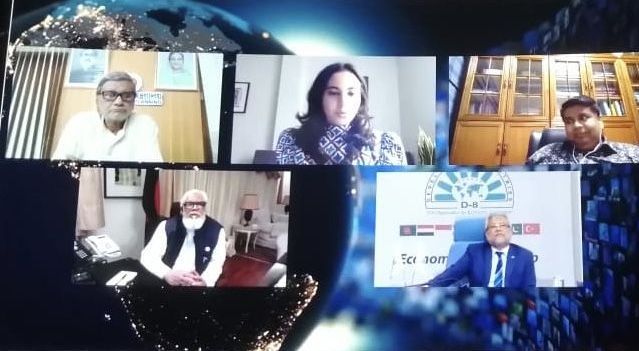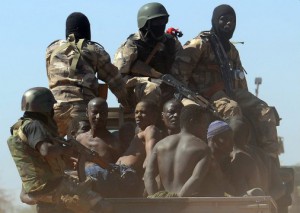Bangladesh Minister of National Planning, M. A. Mannan says there is an urgent need to reorganize the health systems in his country and around the world in addition to supporting and amplifying the social safety net for the informal sector with the support of the global community.
The Minister who spoke at a virtual conference on “Post COVID-19 Emergence” insisted that “we have to regroup, reshape, and recover ourselves as well we have to establish our trade links with our trading partners and go into the export business immediately as early as we can.”
Another discussant and member of the Bangladesh Parliament, Salman F. Rahman argued that as part COVID recovery process, the world must embrace the digitization era as an immediate solution to the vulnerabilities brought about by the pandemic. In the words of Rahman, “digital structuring is very important for rejuvenating the economy and it’s necessary to have the proper digital infrastructure.”
Bangladesh, he claimed, had success stories of strong digital infrastructure and readiness for supporting the private sector including other sectors such as education, healthcare, agriculture, administrations in terms of this digital transformation.
“We were thinking about universal education by going online before and this COVID crisis has created such a huge opportunity for us to make that transition easy and the biggest barrier remains the mindset which we think we have crossed already confronting our present situation,” the lawmaker told an audience of experts and policymakers from Asia, Africa, America, and Europe.
In his remarks during the panel session on Reviving Education & Intellectualism, Dr. Dipu Moni, Education Minister of Bangladesh spoke of the prospect of distance learning in the country and around the world. Whether it’s at the primary, secondary, higher secondary or at the tertiary level, Dr. Moni noted that everyone was now on board with remote learning and “I believe that this mode of learning and teaching will stay even after the COVID crisis, so we will have the blended education system.”
Acknowledging the necessity of data sharing as a tool of pandemic recovery, Anir Chowdhury, Policy Advisor to the a2i of ICT division of Bangladesh Government called for the application of human judgment in the modeling of data intelligence and in the future of artificial intelligence and machine learning.
“Humans will also have a fairly important role to play in the world of data and there have to be some ideal standards so that the data can truly be interoperable for a rapid response in a crisis like COVID.”
Jacob Ouma, Managing Director at Admedia Communications Limited told the panel on “Dhaka: Asia and Africa Focus” that Asia and Africa should develop very critical partnerships in trade and development towards an effective south-south conversation and cooperation.
Similarly, Mohammad Maggasy, Member of Parliament from the Gambia echoed the need for south-south dialogue and called for more bilateral economic and social cooperation between Bangladesh and African countries.
Focusing on women’s rights and women’s employment issues, Denise Lama Feliu- the advisor of women affairs for the government of Chile, detailed out reform plans that could effectively address the aspirations of women in the post- Covid-19 era.
Representations from UNDP & UN climate advisors discussed the new and tricky situation of global climate & environment with necessary focus points.
The UK shadow Minister for Social Cohesion- Naz Shah, emphasized the need for the human race to come together now more than ever along with the former UN ambassadors of South Africa and UNDP Country Representative- Sudipto Mukherjee.
Dhaka Forum, dubbed as the Davos of the South plans to host High-level forums & symposiums regularly to address global challenges with Private-Public Cooperation engaging leaders of the international and local community to shape global, regional & industry-specific agendas. Dhaka Forum is the flagship of the emerging leadership contribution of Dhaka to the rest of the world.







